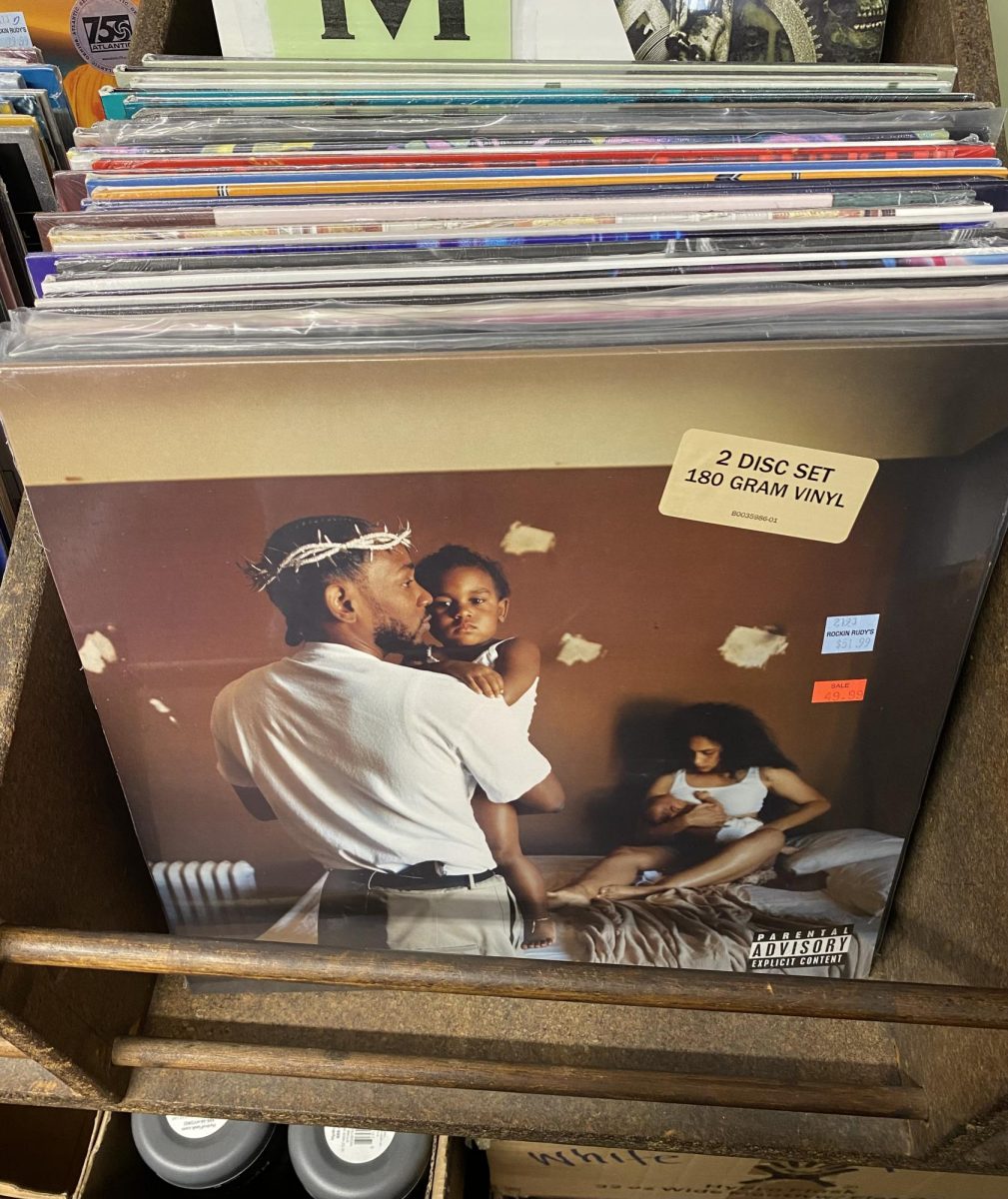WARNING: The following article brings up topics of sexual abuse. If you are sensitive to this, read at your own discretion.
On May 13, 2022 Kendrick Lamar released an album for the first time in five years. With nineteen total songs, Mr. Morale & The Big Steppers digs into his trauma, therapy journey, social issues.
In the title, “the big steppers” refers to “those in his world assuming facades… to mask the inner trauma that they’re tap-dancing around”.
The first song on the album is “United In Grief”.
It opens with Lamar saying “I’ve been going through something 1,855 days”. That’s exactly the time difference between the release of DAMN to this album. Throughout this whole song he touches on several ideas of issues in the music industry, wealth, infidelity.
This is also the first time he mentions therapy: “I went and got me a therapist, I can debate on my theories and sharing it”. Lamar is constantly honest about his opinions.
The second song on the album is called “N95”.
A N95 is the medical grade masks that we saw during the global pandemic. Some references aren’t as apparent as others, but it’s very obvious it’s his opinions on how the pandemic was handled and the social effect it made.
Up next is “Worldwide Steppers”.
This song does not have just one meaning to take away. Lamar talks about cancel culture, writer’s block, and even the “shortcomings of society and his own failures”.
Kodak Black is featured on this song as well as three others. He has several criminal charges, but Lamar has made it clear that he doesn’t want to denounce him for his past mistakes.
“Die Hard” is the next song on the album.
It shows Lamar opening up about his insecurities and relationship struggles with sharing and honesty. He fears that, if he opens up, the person won’t still love him for who he is. This uncertainty probably comes from trauma caused by past experiences.
Despite this, by the end of the song he accepts that this is not what every relationship will look like and it’s okay to put his guard down.
The fifth song is “Father Time”.
“Father Time” explores his issues with his father as well as his wife, Whitney, telling Lamar he needs to go to therapy.
He talks about having “a foolish pride” and toxic masculinity passed down from a father or an absent father. Lamar goes in depth into the struggles of “gang culture among young Black men in the broader community” and how that can lead to issues with father figures .
Following “Father Time” is “Rich – Interlude” and “Rich Spirit”.
This is the first of two interludes on the album.
“Rich – Interlude” is about the rap industry and what it was like for Lamar. “Rich Spirit” is about him standing up for himself even through all the criticism. The song also touches on themes of mortality, loyalty, narcissism, and others.
Next is “We Cry Together”.
Originally this song wasn’t even supposed to be on the album, it was supposed to be turned into a short film.
This is what Lamar had to say about the song,
The next song on the album is “Purple Hearts”.
“Purple Hearts” takes a different sound to the album. The lyrics touch on love, spirituality, and drugs. It is also seen as maybe talking about abuse with purple connecting to bruises.
The tenth track is “Count Me Out”.
This is about Lamar taking a step into his new life and feeling like he’s obligated to open up more in his relationship. It shows the more positive side of being vulnerable and that not everything has to be negative.
Following “Count Me Out” is “Crown”.
Lamar brings up religious ideologies and the rap industry again. Being in the music industry is hard and draining, but Lamar expresses how dangerous the rap side of it is.
“Silent Hill” featuring Kodak Black is next.
This song touches on recurring themes that pop up throughout the entire album, nothing necessarily new. It is important to mention that the title could also refer to the horror game Silent Hill that came out in 1999. Lamar could be comparing the horror game to the rap industry.
“Savior – Interlude” and “Savior” is the second interlude pair on this album.
Baby Keem is featured on both of these songs. The interlude starts with Keem opening the song with his personal problems growing up then it leads into recent experiences and overcomings.
According to Genius, “Savior” is literally about “the brokenness of society”. Each verse addresses another issue that society has been facing. It consists of racial issues, political correctness, and ends with Lamar talking about his own flaws.
The fifteenth song is “Auntie Diaries”.
In “Auntie Diaries” Lamar talks about the LGBTQ+ community, specifically transgender people. One of the first lyrics is, “My auntie is a man now”. He addresses the society and church’s view on the community.
Lamar also juxtaposes the N-word and F-word with how they are both misused in their communities. He did this as a teaching moment to be aware of both peoples and the misconceptions. At the end of the song Lamar mentions the time in 2018 when he brought a white girl on stage to sing with him, but she ended up saying the N-word.
He wanted to start over and let her not say it, but she ended up being sent back to the audience.
This transitions into the next song, “Mr. Morale”.
It speaks themes of generational trauma. Abuse and sexual harassment are brought up through Lamar mentioning R. Kelly and Oprah.
“Mother I Sober” is an almost seven minute song.
In this song Lamar very openly talks about the sexual abuse that he experienced from his mother. It touches on drug addiction and him cheating on his fiance at the time. He explains how toxic sex culture is in the Black community. At the end of the song Lamar talks about breaking the “generational curse”.
The second to last song is “Mirror”.
It’s almost a summary of all the themes shown through the whole album. Lamar uses it as a metaphor for personal growth. With the long awaited release of this album, he explains how he doesn’t want his fans to wait on him and that they should grow on their own.
The final song is “The Heart Part 5”.
Lamar reflects on Michael Jackson and Martin Luther King Jr. and what they did for the Black community. Each verse explores how “the media is quick to dismiss an artist’s contributions to society due to their personal shortcomings”.
He ends on the idea that the things that the artist did still bring meaning and worth despite negative or controversial things they did.
Some people have said that this is Kendrick Lamar’s worst album. But in my opinion, out of his five studio released albums none of them are comparable.
Quality Control CEO Pierre tweeted, “Kendrick album makes you really look in the mirror and question yourself” about Mr. Morale & The Big Steppers.
Take a listen and see if you feel the same way.




